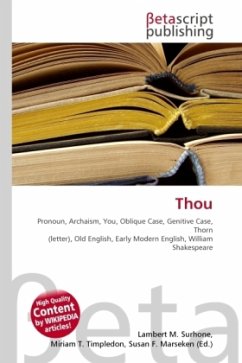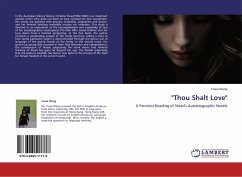High Quality Content by WIKIPEDIA articles! The word thou (pronounced /ða?/ in most dialects) is a second person singular pronoun in English. It is now largely archaic, having been replaced in almost all contexts by you. It is still used in parts of Northern England, the far north of Scotland, and a handful of US towns. Thou is the nominative form; the oblique/objective form is thee (functioning as both accusative and dative), and the possessive is thy or thine. Almost all verbs following thou have the endings -st or -est; e.g., "thou goest". Originally, thou was simply the singular counterpart to the plural pronoun ye, derived from an ancient Indo-European root. Following a process found in other Indo-European languages, thou was later used to express intimacy, familiarity, or even disrespect while another pronoun, you, the oblique/objective form of ye, was used for formal circumstances (see T-V distinction). In the 17th century, thou fell into disuse in the standard language but persisted, sometimes in altered form, in regional dialects of England and Scotland, as well as in the language of such religious groups as the Society of Friends.







